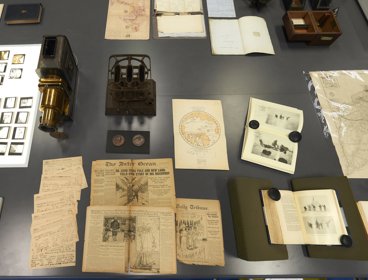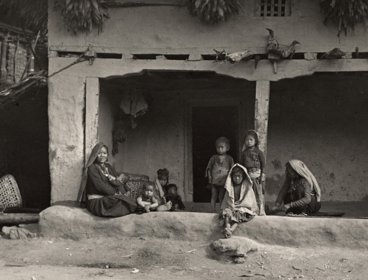In 2022-23 we awarded three Wiley Digital Archive Research Fellowships, enabling the Research Fellows to access and undertake research using the hundreds of thousands of items from our historic Collections that have been digitised as part of the Wiley Digital Archive project.
With their time in the archives soon coming to an end, we’re speaking to each of our Research Fellows to find out more about their projects. This time we’re hearing from Ellen Smith, who has been exploring the archives to reconstruct the experiences of Minna Markham, who accompanied her husband Clements Markham on expeditions in South America, India and Sri Lanka in the 19th century. We caught up with Ellen to hear about her research, why she applied for the Fellowship and what she’s found so far in the digital archives.
How did you come to be interested in your current research?
My research focus has largely centred around the experiences of women in British imperial families. I am also interested in the broader global networks to which these families belonged in the 19th and 20th centuries. My recent article for Gender & History considered how the widows of male victims of fatal violence in British India were responsible for constructing dominant and popular narratives of British death and sacrifice, largely at a time when British rule was being challenged by emerging nationalist movements. Women had hitherto been studied as the 'victims' of violence or the 'allegories' of British honour, rather than active writers and producers of scripts surrounding British counterinsurgency themselves.
This research prompted further questions about the interventions of women in the British imperial project more widely. You can imagine my delight when I rooted around the contents of the papers of Clements Markham (1830-1916) and found that he was not the lone male explorer and expeditionist that one might have supposed. It seems his wife Minna accompanied him on expeditions sponsored by the India Office in 1859 to retrieve Cinchona plants, which were critical for the production of quinine, and this revolutionised the modern world's fight against malaria.
What made you apply for a WDA Research Fellowship?
WDA resources in connection to the Royal Geographical Society (with IBG) are perhaps not an expected platform for research into experiences of family, women and gender in the 19th century. However, I often find that archival traces are not always logical and straightforward. Some of the most intriguing and revealing stories are buried in unexpected places. Access to this vast and varied archive gives me the opportunity to think about how we might understand the entanglements of the family and relationships of intimacy with the history of empire, exploration, science, travel and global exchange.
How does your project sit within your wider research interests?
I am currently working on a broader project of which the movements and work of Minna Markham will form a part. This project, Archives of empire: intergenerational encounters, memory and loss in the imperial family, will explore how the 'archival turn' works within personal family archives, and asks in what ways, if any, family archives are related to the broader 'bureaucratisation' of the British imperial project in the second half of the 19th century. It will respond to Michel-Rolph Trouillot's four-stage cycle of archival construction and 'silencing' from the perspective of the family to understand what kinds of 'archival labours' were producing and maintaining imperial histories. It will further determine at what points these efforts merged with the work of the imperial state at large.
What are you hoping to find in the digital archives?
Primarily, I am hoping to cement my understanding of the Markham family expeditions and further acknowledge Minna's place within narratives surrounding Clement's life and work. More broadly, I will mine the digital archive for diaries of journeys, journals, scrapbooks, albums and accounts by British travellers, largely with a specific interest in their global encounters, to think about how we write histories of curating, narrating and ordering particular experiences.
Find out more about our Wiley Digital Archive Research Fellowships




